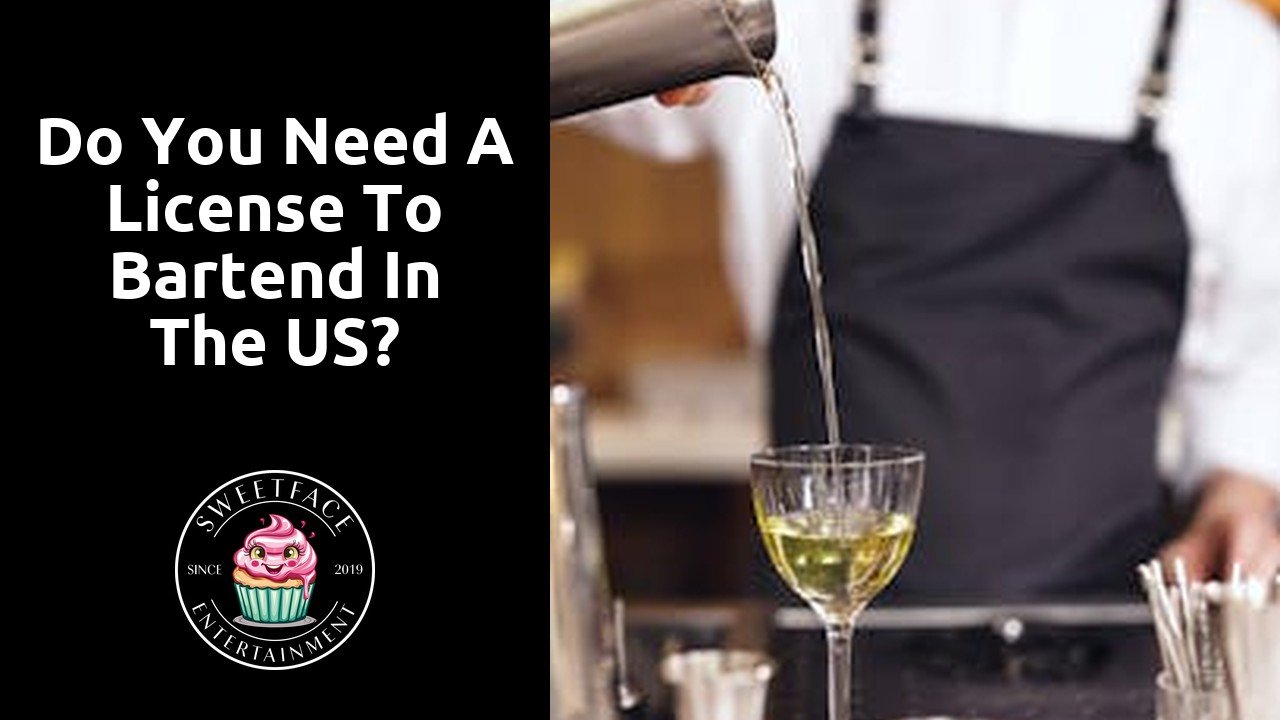Table Of Contents
Difference Between Bartending Certification and License
Bartending certification and a bartending license may sound similar, but they serve different purposes in the hospitality industry. While both demonstrate a certain level of competency in serving alcohol, they have distinct distinctions. Bartending certification typically refers to a short-term course or program that educates individuals on mixing drinks, familiarizing them with bar tools, and teaching them basic bartending techniques. It is commonly a voluntary step for individuals who wish to enhance their bartending skills or increase their job opportunities in the field.
On the other hand, a bartending license is a legal requirement to serve alcohol in most states in the US. This license is issued by the state’s Alcohol Beverage Control (ABC) board or similar regulating authority, and it is mandatory if someone wants to work as a bartender in a licensed establishment. A bartending license ensures that the licensee understands the laws and regulations surrounding alcohol service, has completed necessary training on responsible serving practices, and is aware of the potential consequences of over-serving patrons.
Legal Implications
One of the key legal implications to consider in the bartending industry is the responsibility that comes with serving alcohol. Bartenders are required to adhere to specific laws and regulations governing the sale and consumption of alcohol, such as checking identification to verify legal drinking age and knowing when to refuse service to intoxicated customers. Violating these laws can lead to serious consequences, including fines, loss of license, and even criminal charges.
Additionally, bartenders must be aware of liability issues that may arise from overserving patrons. In the event that a customer causes harm to themselves or others due to intoxication, bartenders could potentially face civil lawsuits. Understanding the legal implications of bartending and ensuring compliance with alcohol service regulations is crucial to maintaining a safe and responsible drinking environment.
Cost of Obtaining a Bartending License
Obtaining a bartending license in the United States varies in cost depending on the state and specific requirements. Typically, the expenses associated with getting licensed to bartend include fees for training programs, background checks, examination costs, and the actual license application. On average, the total cost can range anywhere from $50 to $500, or even more in some cases. It’s essential to research the specific regulations and fees in your state to budget accordingly for pursuing a career in bartending.
In addition to the initial cost of obtaining a bartending license, renewal fees are also a factor to consider for bartenders wishing to stay compliant with the law. Renewal fees may be required annually or biennially, with costs that can vary based on state regulations. Some states may require continuing education courses or refresher training before renewing a bartending license. Understanding the financial commitment involved in maintaining a valid bartending license is crucial for individuals pursuing a successful career in the hospitality industry.
Budgeting for Certification
Budgeting for certification as a bartender is an essential step in pursuing a career in the hospitality industry. The cost of obtaining a bartending license can vary depending on the state and institution offering the certification. It is crucial to research the different programs available and examine their respective costs to plan your budget effectively.
When budgeting for bartending certification, consider not only the initial certification fee but also any additional expenses that may arise, such as study materials or exam retake fees. Creating a detailed budget that accounts for all potential costs associated with obtaining your bartending license will help you avoid any financial surprises along the way. By allocating funds specifically for your bartending certification, you can invest in your future career with confidence and financial preparedness.
Importance of Responsible Alcohol Service Training
Responsible alcohol service training is a crucial aspect of bartending. It equips bartenders with the knowledge and skills necessary to ensure the safety and well-being of their patrons. By understanding the signs of intoxication, checking identification for legal drinking age, and knowing how to handle difficult situations, bartenders can create a safer environment for everyone in the establishment.
In addition to promoting safety, responsible alcohol service training can also help bartenders protect their careers. By following regulations and guidelines for serving alcohol, bartenders can avoid legal issues that may arise from overserving customers. Building a reputation as a responsible bartender not only benefits the individual, but also the establishment where they work, creating a positive and trustworthy image in the eyes of customers.
Preventing Legal Issues
Preventing Legal Issues
Bartending requires a keen understanding of laws and regulations related to alcohol service. By familiarizing yourself with the legal requirements in your state or city, you can proactively prevent potential legal issues that could arise while working behind the bar. Maintaining compliance with age verification laws, checking identification for proof of legal drinking age, and monitoring patrons’ alcohol consumption are crucial responsibilities to avoid legal complications.
Furthermore, it is essential to stay informed about any changes in bartending laws and regulations to ensure that you are always adhering to the latest standards. Developing a thorough knowledge of your state’s alcohol serving laws can help prevent legal pitfalls, protect your business, and safeguard both you and your patrons from unnecessary legal troubles. Remember, prevention is key in maintaining a successful and law-abiding bartending career.
FAQS
Do I need a license to bartend in the US?
Yes, in the United States, most states require bartenders to have a license or permit to serve alcohol legally.
What is the difference between bartending certification and a license?
Bartending certification typically refers to completion of a training program, while a license is a formal document issued by the state permitting an individual to serve alcohol.
What are the legal implications of bartending without a license?
Bartending without a license can result in fines, legal action, and even the closure of the establishment where you work.
How much does it cost to obtain a bartending license?
The cost of obtaining a bartending license varies by state and can range from $50 to $500.
How should I budget for bartending certification?
When budgeting for certification, consider the cost of the training program, exam fees, and any additional materials required.
Why is responsible alcohol service training important for bartenders?
Responsible alcohol service training helps bartenders understand the legal responsibilities of serving alcohol and how to prevent issues like underage drinking or overconsumption.
How can responsible alcohol service training help prevent legal issues?
By being properly trained in responsible alcohol service, bartenders can identify and address potential issues before they escalate, reducing the risk of legal consequences.
Related Links
Bartending
Do I need a license to bartend in Florida?
How long is bartending school in Florida?
Can bartenders drink on the job in Florida?

